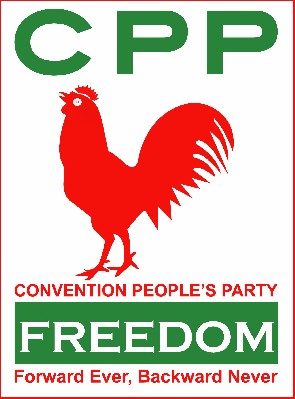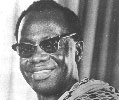Related Research Articles

The area of the Republic of Ghana became known in Europe and Arabia as the Ghana Empire after the title of its Emperor, the Ghana. Geographically, the ancient Ghana Empire was approximately 500 miles (800 km) north and west of the modern state of Ghana, and controlled territories in the area of the Sénégal River and east towards the Niger rivers, in modern Senegal, Mauritania and Mali. The empire appears to have broken up following the 1076 conquest by the Almoravid General Abu-Bakr Ibn-Umar. A reduced kingdom continued to exist after Almoravid rule ended, and the kingdom was later incorporated into subsequent Sahelian empires, such as the Mali Empire. Around the same time, south of the Mali empire in present-day northern Ghana, the Kingdom of Dagbon emerged. The decentralised states ruled by the tindaamba were unified into a kingdom. Many sub-kingdoms would later arise from Dagbon including the Mossi Kingdoms of Burkina Faso and Bouna Kingdom of Ivory Coast. Dagbon pioneered Ghana's earliest learning institutions, including a university town, and a writing system prior to European arrival.
Yaa Asantewaa I was the Queen Mother of Ejisu in the Ashanti Empire, now part of modern-day Ghana. She was appointed by her brother Nana Akwasi Afrane Okese, the Edwesuhene, or ruler, of Edwesu. In 1900, she led the Ashanti war also known as the War of the Golden Stool, or the Yaa Asantewaa War of Independence, against the British Empire.

The Gold Coast was a British Crown colony on the Gulf of Guinea in West Africa from 1821 until its independence in 1957 as Ghana. The term Gold Coast is also often used to describe all of the four separate jurisdictions that were under the administration of the Governor of the Gold Coast. These were the Gold Coast itself, Ashanti, the Northern Territories protectorate and the British Togoland trust territory.

Kumasi is a city in the Ashanti Region, and is among the largest metropolitan areas in Ghana. Kumasi is located in a rain forest region near Lake Bosomtwe, and is the commercial, industrial, and cultural capital of the historical Ashanti Empire. Kumasi is approximately 500 kilometres (300 mi) north of the Equator and 200 kilometres (100 mi) north of the Gulf of Guinea. Kumasi is alternatively known as "The Garden City" because of its many species of flowers and plants in the past. It is also called Oseikrom, after Osei Kofi Tutu I who was a king in the Ashanti empire.

The national flag of Ghana consists of a horizontal triband of red, yellow, and green. It was designed in replacement of the British Gold Coast's Blue Ensign.

The Convention People's Party (CPP) is a socialist political party in Ghana based on the ideas of the first President of Ghana, Kwame Nkrumah. The CPP was formed in June 1949 after Nkrumah broke away from the United Gold Coast Convention (UGCC).

Kofi Abrefa Busia was a Ghanaian political leader and academic who was Prime Minister of Ghana from 1969 to 1972. As a nationalist leader and prime minister, he helped to restore civilian government to the country following military rule.

The Anglo-Ashanti wars were a series of five conflicts that took place between 1824 and 1900 between the Ashanti Empire—in the Akan interior of the Gold Coast—and the British Empire and its African allies. The wars were mainly due to Ashanti attempts to maintain and enforce their imperial control over the coastal areas of present-day Ghana, where peoples such as the Fante and the Ga had come under the protection of the British. Although the Ashanti emerged victorious in some of these conflicts, the British ultimately prevailed in the fourth and fifth conflicts, resulting in the complete annexation of the Ashanti Empire by 1900.
Articles related to Ghana include:

The War of the Golden Stool, also known as the Yaa Asantewaa War, the Third Ashanti Expedition, the Ashanti Uprising, or variations thereof, was a campaign in 1900 during the series of conflicts between the United Kingdom and the Ashanti Empire, an autonomous state in West Africa that fractiously co-existed with the British and its vassal coastal tribes.

The Asante Empire, today commonly called the Ashanti Empire, was an Akan state that lasted from 1701 to 1901, in what is now modern-day Ghana. It expanded from the Ashanti Region to include most of Ghana and also parts of Ivory Coast and Togo. Due to the empire's military prowess, wealth, architecture, sophisticated hierarchy and culture, the Ashanti Empire has been extensively studied and has more historic records written by European, primarily British, authors than any other indigenous culture of sub-Saharan Africa.
Kwame Sanaa-Poku Jantuah, originally known as John Ernest Jantuah, was a Ghanaian politician, lawyer and diplomat.

Sir Edward Okyere Asafu-Adjaye (1903–1976) was a Ghanaian political figure, lawyer and diplomat. He was the first Ashanti lawyer and Ghana's first High Commissioner in Britain with accreditation to France concurrently.
Mabel Dove Danquah was a Gold Coast-born journalist, political activist, and creative writer, one of the earliest women in West Africa to work in these fields. As Francis Elsbend Kofigah notes in relation to Ghana's literary pioneers, "before the emergence of such strong exponents of literary feminism as Efua Sutherland and Ama Ata Aidoo, there was Mabel Dove Danquah, the trail-blazing feminist." She used various pseudonyms in her writing for newspapers from the 1930s: "Marjorie Mensah" in The Times of West Africa; "Dama Dumas" in the African Morning Post; "Ebun Alakija" in the Nigerian Daily Times; and "Akosua Dzatsui" in the Accra Evening News. Entering politics in the 1950s before Ghana's independence, she became the first woman to be elected a member of any African legislative assembly. She created the awareness and the need for self-governance through her works.
Kofi Gyemfi II was a Ghanaian politician, ex-serviceman, and hotelier. He was a member of the Parliament of Ghana for Atwima Amansie during the first Parliament of the Second Republic of Ghana. He served in the Ghana Armed Forces during World War II and managed and owned various hotels throughout his life.
The political organization of the historical Ashanti Empire was characterized by stools which denoted "offices" that were associated with a particular authority. The Golden Stool was the most powerful of all, because it was the office of the King of the Ashanti Empire. Scholars such as Jan Vansina have described the governance of the Ashanti Empire as a federation where state affairs were regulated by a council of elders headed by the king, who was simply primus inter pares.

Ghana–United Kingdom relations are the diplomatic, historical and trade relations between Ghana and the United Kingdom. Modern state Ghana-UK relations began when Ghana became independent from the UK in 1957.
Sulemanu KwameTandoh also known by the name Samuel Kwame Tandoh, was a Ghanaian diplomat and politician. He was a member of parliament for Bantama Consistency.
John Wallace Tsiboe, also sometimes referred to as John S. Tsiboe (1904–1963) was a Ghanaian merchant and newspaper proprietor, the founder editor and owner of the independent Ashanti Pioneer.
Nancy Tsiboe was a Ghanaian publisher, educator and activist.
References
- ↑ "Search results from Newspaper, 1957, Ghana, Newspapers, The Ashanti Pioneer. (Kumasi, Ghana :) 1939 to 1962". Library of Congress. Retrieved 2020-08-08.
- ↑ Owusu-Ansah, David (2014). "Tsiboe, John Wallace (1904-1963)". Historical Dictionary of Ghana. Rowman & Littlefield. p. 310. ISBN 9780810875005.
- ↑ Hargrove (2009). "Ashanti Pioneer: Coverage of Growing Political Developments in the Gold Coast, 1946–1949". Journal of West African History. 5 (2): 29–56. doi:10.14321/jwestafrihist.5.2.0029. JSTOR 10.14321/jwestafrihist.5.2.0029 – via Researchgate.
- ↑ Faringer, Gunilla L. (1991). Press Freedom in Africa. Greenwood Publishing Group. ISBN 978-0-275-93771-3.